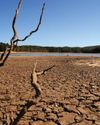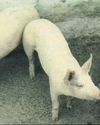Statistics indicate that more than 15% of the human population will pick up a zoonotic infection at some stage of their lives. Veterinary specialist in public health Dr Jan H du Preez takes a closer look at the threats presented by some of the more common zoonoses across the world.

Scientists estimate that no fewer than six out of 10 infectious diseases in humans are zoonoses.
The majority of zoonoses come from livestock, including cattle, chickens, pigs, goats, sheep and camels, as well as pets. More than 200 zoonoses are recognised worldwide.
THREAT OF RABIES
This horrifying viral disease is deadly for both animals and humans; it kills more than 55 000 people across the world annually.
Dogs are the source of up to 99% of human rabies deaths. Forty percent of people bitten by suspected rabid animals are children under 15 years of age. Every year, more than 15 million people worldwide receive a post-bite vaccination, which is estimated to prevent thousands of rabies deaths a year. Rabies is present on all continents except Antarctica, but more than 95% of human deaths from the disease occur in Asia and Africa. All warm-blooded animals with fur may be carriers and transmit the virus.
In South Africa alone, more than R70 million a year is spent on post-exposure prophylactic rabies treatment. Worldwide, rabies causes annual losses to the livestock sector estimated at US$512 million (about R6,3 billion).
ZOONOTIC INFLUENZA
Avian and swine influenza are viral zoonoses. Human infection can occur after direct or indirect contact with infected poultry or pigs. Some people with animal influenza develop serious and potentially life threatening complications, such as pneumonia. The most infamous pandemic was the so-called Spanish flu, caused by an avian influenza virus that killed tens of millions of people in 1918 and 1919.
TOXOPLASMOSIS: A DANGER IN PREGNANCY
Bu hikaye Farmer's Weekly dergisinin May 11, 2018 sayısından alınmıştır.
Start your 7-day Magzter GOLD free trial to access thousands of curated premium stories, and 9,000+ magazines and newspapers.
Already a subscriber ? Giriş Yap
Bu hikaye Farmer's Weekly dergisinin May 11, 2018 sayısından alınmıştır.
Start your 7-day Magzter GOLD free trial to access thousands of curated premium stories, and 9,000+ magazines and newspapers.
Already a subscriber? Giriş Yap

Improving efficiencies in feed and grain milling
Bühler, a Swiss-based company that provides solutions and equipment for various industries, including food and animal feed processing, has pledged that by 2025, it will deliver scalable solutions that will reduce energy, waste and water by 50% in the value chains of its customers.

Tips for better olive production
At an SA Olive Association field day in November, industry experts shared ways to improve olive production efficiencies, from soil preparation to harvesting.

More effort needed to protect vulnerable cheetah
On International Cheetah Day, commemorated every year on 4 December, emphasis was placed on the vulnerability of the species.

Global agriculture: news that made the headlines
Farmer protests, droughts and floods dominated international agricultural news throughout 2024. Here, Janine Ryan gives an overview of these challenges.

Something to scratch a head about
This article showed that if you interact with your pigs, your sows will be happy and their piglets will have better growth.

ARC names best dairy producers of the year
The Agricultural Research Council (ARC) recently announced the winners of the 2024 National Master Dairyman Awards at an event hosted by AgriExpo in Stellenbosch, Western Cape.

Lion breeders to give up bone stockpiles?
The Ministry of Forestry, Fisheries and the Environment issued an official notice in mid-November in which it called on lion breeders to voluntarily hand over their lion bone stockpiles to the state as soon as possible.

Thousands of British farmers march on parliament against inheritance tax
Thousands of UK farmers gathered in London, England, on 19 November to demand the government repeal a proposed inheritance tax on agricultural land, which they argued threatened the future of family-run farms (see page 4), Al Jazeera reported.

Feed, hay, and other costs are up, so it's time to get creative
Breeders and riding schools need to explore innovative ways to generate income in order to ensure their survival, says Dr Mac.

How to make polystyrene seedling trays last longer
While thinking about how to prolong the lifespan of polystyrene seedling trays that are exposed to harsh sunlight, Bill Kerr began to wonder if a coat of paint might offer a solution.